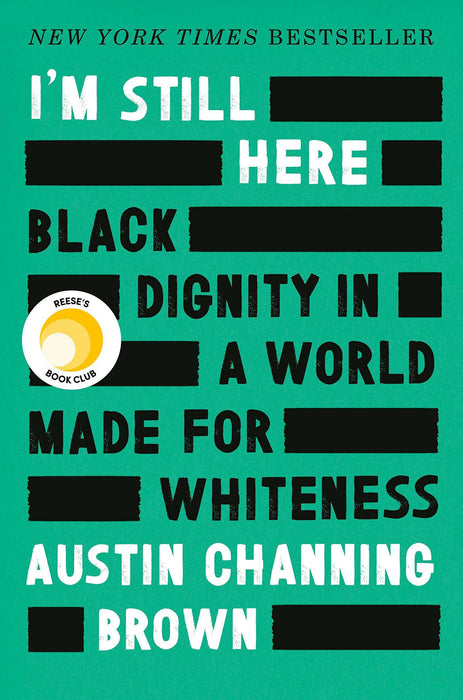
I'm Still Here: Black Dignity in a World Made for Whiteness
Susan and I both have had the opportunity to digest this book in recent weeks. It's an important memoir from the life of a black women growing up in a mostly white neighborhood, school and workplace. There were many times we both felt like throwing the book across the room yelling "that's not true, I don't do that!" –sobering moments exposing our attempts at being friendly and helpful that in reality were likely hurtful or at the least, insensitive. Woven within is the Christian perspective that also began the process of both of us really taking time to think about how we as followers of Christ can begin to influence our churches to be more open and willing to address racism that we've been ignorant for so long.
–Bryson
From the Publisher
Austin Channing Brown’s first encounter with a racialized America came at age seven, when she discovered her parents named her Austin to deceive future employers into thinking she was a white man. Growing up in majority-white schools and churches, Austin writes, “I had to learn what it means to love blackness,” a journey that led to a lifetime spent navigating America’s racial divide as a writer, speaker, and expert helping organizations practice genuine inclusion.
In a time when nearly every institution (schools, churches, universities, businesses) claims to value diversity in its mission statement, Austin writes in breathtaking detail about her journey to self-worth and the pitfalls that kill our attempts at racial justice. Her stories bear witness to the complexity of America’s social fabric—from Black Cleveland neighborhoods to private schools in the middle-class suburbs, from prison walls to the boardrooms at majority-white organizations.
For readers who have engaged with America’s legacy on race through the writing of Ta-Nehisi Coates and Michael Eric Dyson, I’m Still Here is an illuminating look at how white, middle-class, Evangelicalism has participated in an era of rising racial hostility, inviting the reader to confront apathy, recognize God’s ongoing work in the world, and discover how blackness—if we let it—can save us all.
